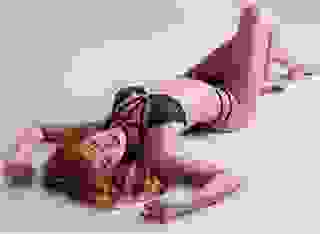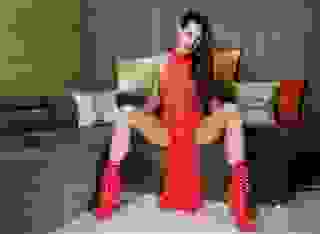- How To
- Creating Effective Scenes
Note: You can change font size, font face, and turn on dark mode by clicking the "A" icon tab in the Story Info Box.
You can temporarily switch back to a Classic Literotica® experience during our ongoing public Beta testing. Please consider leaving feedback on issues you experience or suggest improvements.
Click hereFor some unknown reason, new writers avoid concise writing practices. Paragraphs become wordy, long drawn out sequences of adjectives, adverbs, and clichés as the aspiring author attempts to impress readers with their skill in literary arts.
I am terribly guilty of this, even now, after twenty years in writing... but that's what rewrites are for.
The dilemma I see, though, is that new authors stake their claim in a first draft as though they found the mother lode, and their work is pure gold. Even if a story is platinum, if the scenes are obsequious, the reader will lose interest. I'm sorry, but it is a fact.
New authors get the idea that a concise message will dilute their work, and all those pretty words are wasted, but realistically, a concise paragraph that tells a story effectively is fiction on steroids.
If an author can describe blue in seven sentences or less, then this individual has out written the author who cannot. I realize how arrogant, how opinionated, how ridiculous, and selfish this may sound, but take it into consideration. When you read instructions, would you prefer longer instructions, or accurate short instructions?
When you watch a movie, would you prefer to watch a fast paced action sequence, or a sequence too busy to focus on the action at hand?
This is described in one word: chaos. For example:
The rain fell harshly, falling hard, like marbles, pelting the dry, and cracked desert soil. There had not been rain in the valley for a long, long time. Within minutes, the soil yielded helplessly to the rain, turning to mud, and then puddles, and then gradually, into a pond. The rain seasons had begun. It was during this time of the year that the most torrential storms shook the valley, and by the end of spring it would create an oasis that would last until the end of the first month of summer. Then the harsh relentless sun would destroy everything that had struggled to be when the desert became a wetland.
I almost fell asleep writing it, but we see it all too often. I felt almost like I was watching an episode of National Geographic. A description like this may even belong there, but it doesn't belong in a book. Cutting the description paragraph does not mean cutting the power of its effective description. There's a hellish desert. There's a storm that is alien to the desert but once a season, once a year, and there's the reclamation of that hell. It's a cycle. I was good friends with a famous artist by the name of Oleg Zhivetin (I was actually engaged to his daughter at the time). He read a manuscript of mine, tossed it back on my lap, and said (with his thick Russian accent): "A story, written good, a reader should pick up the book, open it to any page, read a line, and be instantly able to read from that point forward."
Translation: Every sentence should be interesting; every line should be a hook. At no point should a book ever have "filler" or "dead air". I am as guilty of this writing sin as anyone.
Let's visit that desert again.
Monsoons were alien to the hard, tortured desert soil. Lacking vegetation meant flash floods would soon replace muddy puddles, and nothing would escape the torrential rage. It would stay this way throughout April, calm by may, and by the end of July, you would never know there had ever been an oasis.
I realize the subject is lacking any real excitement... after all, I'm writing about Death Valley... or the Mojave, or Sahara... take your pick of any hostile desert terrain. That's it, right there... but I hope my point is clear. I managed to describe--to show--gale force storms in a single word: Monsoon. I managed to explain cracked earth, and dead land in "hard, tortured desert soil". Even that may have been too descriptive. I explained mud, puddles, and flooding in less time, and managed to explain how it began, how long it would last, and how it would end.
I did this all in roughly three sentences. Had I removed commas, and replaced them with periods, it would be maybe five sentences. It certainly wasn't written in the fashion of its original state.
Effective scenery means enticing descriptions that get straight to the point. It is not an easy method, it is not always fun, but it reads well, and keeps an audience interested.
Challenge yourself, seriously.
1) In seven sentences or less, describe a character with a broken kneecap. You're not allowed to use the word kneecap.
2) In five sentences or less, describe the color purple. You are not allowed to use the word purple.
3) In three sentences or less, describe the process of presidential election.
4) In one sentence, effectively describe a great white shark.
5) In one word, effectively describe a well shaped physique.
In five small exercises, whether you succeed the first time, or not, you begin to understand the importance of description. In fact, if you place limits on description while writing your poetry; your mini sagas, flash fiction, short stories, novellas, or novels, you will find yourself able to replace seven words with three, or even one. The more powerful your ability to do so, the more compelling your structure, the more compelling the read, the more pleased an audience you shall see.








